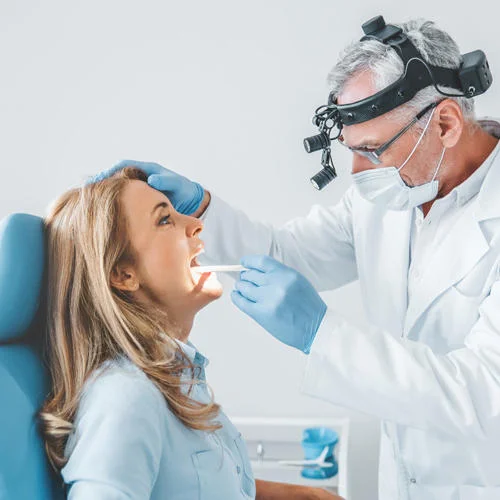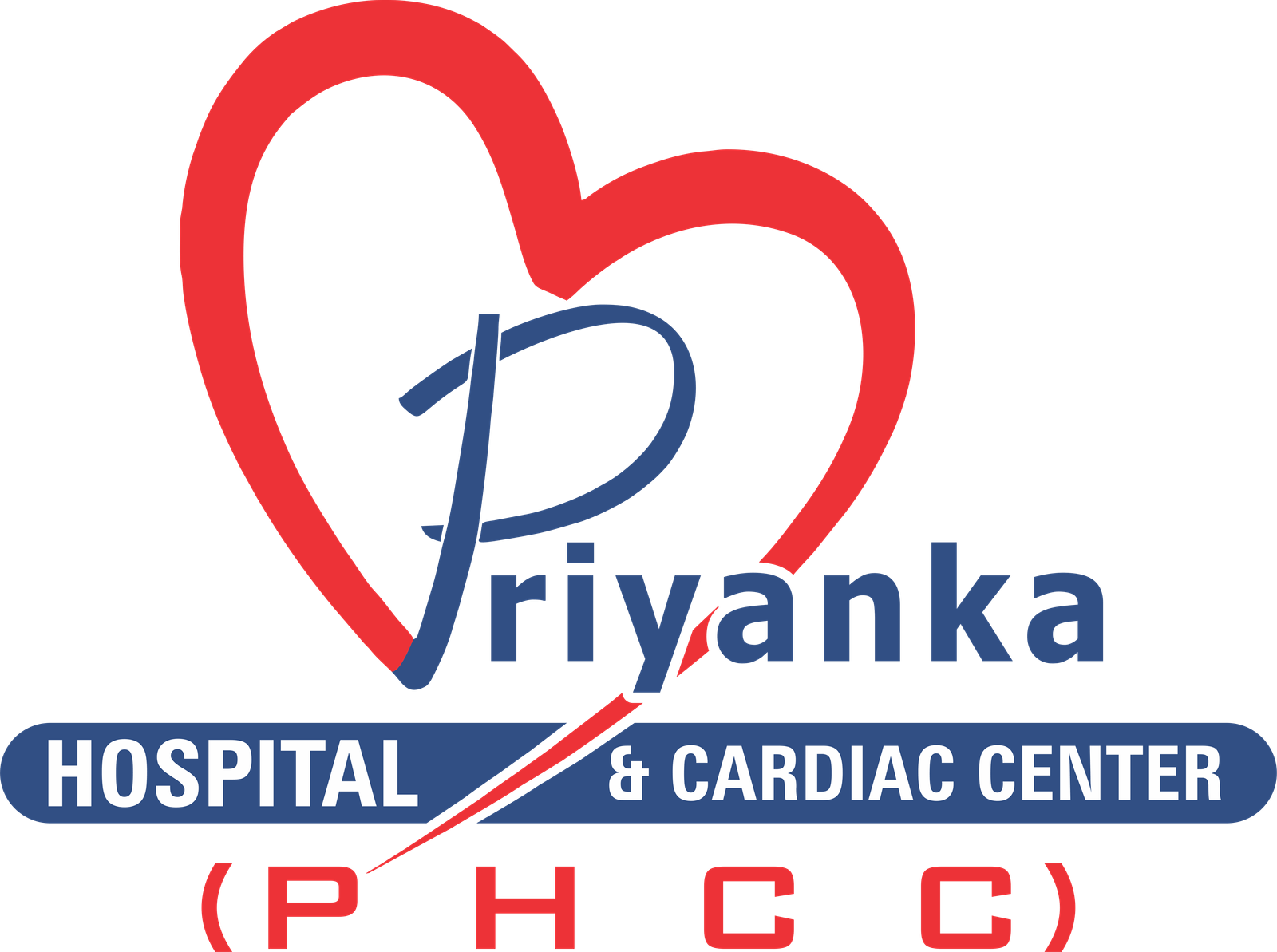Best ENT Surgery Hospital in Jaipur
The department of Ear, Nose and Throat (ENT) at Priyanka Hospitals have got excellent reputation for their services and medical amenities. Our services include professional clinical assessment and quality care to the patients from all over the world. Our services cover a wide range of conditions including general ear, nose, throat, and thyroid disorders, snoring, hearing problems, voice disorders, and salivary gland diseases. As the best ENT surgery hospital in Jaipur. With expert ENT surgeons and advanced surgical techniques, we provide comprehensive ENT care.
We have a team of qualified doctors who are fully equipped to diagnose and treat sleep disorders in accordance with the patient’s condition. We also have a balance and dizziness clinic that houses equipment used in the diagnosis of balance disorders and vertigo. Our doctors are dedicated to apply a team approach to treat even the most complicated cases in order to provide our patients with the maximum level of comfort. Being the best ENT hospital in Jaipur, our core business is to ensure that we handle patients with humility and kindness while offering the best solutions to their problems.

Why Choose Priyanka Hospital For ENT surgery in Jaipur
Priyanka Hospital is one of the best ENT surgery hospitals in Jaipur that provide all types of treatments related to the ENT field. Whether it is a simple procedure such as removal of ear wax or a complicated head and neck surgery, we ensure that we take time and understand the patient and his or her needs. The hospital has modern infrastructures and modern operating theatre equipments to facilitate quality service in the treatment of ENT diseases. We embrace modern technology in our practice and work with minimally invasive and endoscopic procedures for accurate diagnosis of our patients.
What are the Signs and Symptoms of ENT Problems?
ENT diseases present with symptoms that are diverse depending on the type of disease and the stage at which it has reached. Some common signs and symptoms of ENT problems include:Some common signs and symptoms of ENT problems include:
1. Ear pain or discomfort: Pain in the ear or within the ears: Otitis media, otitis externa, wax build up, ruptured eardrum or temporomandibular joint disorder.
2. Hearing loss or changes in hearing: Outer, middle, or inner ear disorders that are symptoms of part of total deafness in one or both ears or decrease in the quality of hearing such as straining to hear, hearing sounds is not so clear, having tinnitus are otitis media, otosclerosis, acoustic neuroma, and presbycusis.
3. Ear drainage or discharge: Ear ache with ear discharge may be clear or colored, it may be blood stained or like pus maybe a sign of some infections, perforated eardrum or any other pathological condition of the ear.
4. Tinnitus: This is a medical condition that is described by ringing, buzzing or hissing or any sound that an individual is able to hear without the sound actually existing. It may be evident with other ear conditions in the ENT region or in an individual’s hearing loss, Inner ear disorders or neurological problems.
5. Nasal congestion or blockage: This blockage could be as a result of one of the following conditions; allergic rhinitis (hay fever), sinus issues, nasal polyps, curved or deviated septum, or nasal cancer.
6. Runny or stuffy nose: Excessive nasal discharge (rhinorrhea), nasal congestion, sneezing, or postnasal drip may be indicative of viral or bacterial infections, allergic rhinitis, sinusitis, or nasal polyps.
7. Sinus pain or pressure: Facial pain, pressure, or tenderness around the sinuses (forehead, cheeks, or between the eyes) can be a symptom of sinusitis (sinus infection) or sinus congestion.
8. Sore throat or throat discomfort: Throat discomfort, throat ache, or the problem of swallowing or pain in swallowing (dysphagia) or irritation of the throat may be due to throat and tonsil problems including viral or bacterial infections such as strep throat, tonsillitis, laryngitis or gastroesophageal reflux disease (GERD).
9. Hoarseness or voice changes: Any change in voice modulations, husky voice, or any unusual changes in voice box may be due to laryngitis or any other disease like vocal nodules or polyps, or vocal paralysis or any other voice disorders.
10. Difficulty breathing or snoring: This is because breathing through the nose or having a snoring sound or other sleeping disorders such as obstructive sleep apnea, or any other respiratory disorders are the signs of nasal congestion.
11. Dizziness or vertigo: Dizziness, lightheadedness, or a spinning sensation (vertigo) can be symptoms of inner ear disorders such as benign paroxysmal positional vertigo (BPPV), labyrinthitis, or Meniere’s disease.
These are some of the common signs and symptoms associated with ENT problems. It’s important to note that many ENT conditions can overlap in terms of symptoms, so a thorough evaluation by an otolaryngologist (ENT specialist) is essential for accurate diagnosis and appropriate management.
What Are the Common Surgeries Performed by ENT Surgeon?
ENT (Ear, Nose, and Throat) surgeons, also known as otolaryngologists, perform a variety of surgical procedures to treat conditions affecting the ears, nose, throat, head, and neck. Some common surgeries performed by ENT surgeons include:
1. Tympanoplasty: Tympanoplasty is an operation to reconstruct the eardrum or the middle ear structures or to repair a tear on the eardrum. It may be done to treat recurrent ear infections, cases of hearing impaired or trauma to the eardrum.
2. Myringotomy and tube placement: Myringotomy is the process whereby a small cut is made on the eardrum in order to let pressure out and to let fluid out of the middle ear. During this procedure, ventilation tubes, (tympanostomy tubes or “ear tubes”) may be placed in the eardrum to help drain and to reduce the occurrence of further ear infections.
3. Mastoidectomy: Mastoidectomy is operation for the removal of infected or pathologic tissue from the mastoid, a bone at the back of head. It is often done in case of chronic or recurrent middle ear inflammation (chronic otitis media) or the presence of the above-mentioned complications.
4. Sinus surgery: Sinus surgery comprises of different surgical operations that are employed to treat chronic sinusitis, nasal polyps, sinus obstructions or sinus tumors. Other sinus surgeries include endoscopic sinus surgery, functional endoscopic sinus surgery, septoplasty, turbinectomy/ reduction, and sinus balloon dilation.
5. Septoplasty and turbinate reduction: Septoplasty is an operation in which a crooked septum is corrected and the patient suffers from a blocked nose and breathing problems. Turbinate reduction entails the surgery where the size of the nasal turbinates is decreased, mainly since they may become bulky due to allergy or chronic sinusitis.
6. Tonsillectomy and adenoidectomy: Tonsillectomy is the surgical process of removing the tonsils from the throat while adenoidectomy is the process of removing the adenoids. These procedures are done in cases of recurrent tonsillitis, chronic tonsillar enlargement, obstructive sleep apnea, and chronic adenoiditis.
7. Thyroid and parathyroid surgery: ENT surgeons may decide to do thyroidectomy or parathyroidectomy for patients with thyroid nodules, thyroid cancer, hyperparathyroidism or other thyroid and parathyroid diseases.
8. Head and neck cancer surgery: ENT surgeons are also involved in the surgical treatment of neoplastic disorders involving various sites of the head and neck region such as throat cancer (pharynx), voice box cancer (larynx), mouth cancer (oral cavity), salivary glands, thyroid gland, cancer of the lymph nodes in the neck and other related cancers. Some of the potentially performed surgeries are tumor excision, lymph node removal, and flap surgery.
9. Laryngoscopy and vocal cord surgery: Laryngoscopy is the examination of the larynx or the voice box of the patient with the help of a metal instrument known as laryngoscope. Laryngeal surgery is occasionally conducted by ENT surgeons, when the patient is suffering from vocal cord lesion, vocal cord paralysis, laryngeal papillomas or other voice abnormalities.
10. Rhinoplasty: Rhinoplasty refers to a plastic surgery that focuses on the nose or the external structure of the nose with an aim of making it more appealing or to fix structural problems that affect the functionality of the nose including deformities, breathing problems, or damage.
These are some of the common surgeries performed by ENT surgeons to treat various conditions affecting the ears, nose, throat, head, and neck. The specific surgical approach and technique will depend on the individual patient’s diagnosis, symptoms, and treatment goals.
Explore Our Main Service
FAQs on ENT
What does ENT medicine involve, and what conditions does it cover?
ENT medicine, also known as Otolaryngology, focuses on the diagnosis, treatment, and management of conditions related to the ear, nose, throat, head, and neck. ENT specialists, or otolaryngologists, treat a wide range of conditions including ear infections, hearing loss, sinusitis, allergies, tonsillitis, voice disorders, swallowing difficulties, sleep apnea, head and neck cancers, and facial plastic and reconstructive surgery.
What are the common symptoms that may indicate a visit to an ENT specialist?
Common symptoms that may warrant a visit to an ENT specialist include ear pain or discomfort, hearing loss, ringing in the ears (tinnitus), nasal congestion, sinus pressure or pain, recurrent nosebleeds, chronic cough, sore throat, hoarseness, difficulty swallowing, persistent snoring, sleep disturbances, and lumps or masses in the head or neck region.
What diagnostic tests and procedures are performed by ENT specialists?
ENT specialists use various diagnostic tests and procedures to evaluate and diagnose conditions affecting the ear, nose, and throat. These may include otoscopy to examine the ear canal and eardrum, audiometry to assess hearing function, nasal endoscopy to visualize the nasal passages and sinuses, laryngoscopy to examine the throat and vocal cords, imaging studies such as CT scans or MRI scans, allergy testing, and biopsies for suspected tumors or lesions.
What are the treatment options offered by ENT specialists?
Treatment options offered by ENT specialists depend on the specific condition and its severity. They may include medications such as antibiotics for infections, corticosteroids for inflammation, antihistamines for allergies, and pain relievers for discomfort. Other treatment modalities may include earwax removal, nasal irrigation, allergy desensitization therapy, voice therapy, surgical procedures (such as tonsillectomy, adenoidectomy, sinus surgery, or thyroid surgery), and hearing aids or cochlear implants for hearing loss.
How can I prevent ear, nose, and throat problems?
Preventive measures to maintain ear, nose, and throat health include practicing good hygiene such as washing hands regularly, avoiding smoking and exposure to secondhand smoke, maintaining proper hydration, using earplugs or earmuffs in noisy environments, practicing proper technique when cleaning ears to avoid injury, avoiding excessive use of nasal decongestant sprays, using a humidifier to keep indoor air moist, staying up to date on vaccinations (such as the flu vaccine), and seeking prompt medical attention for persistent symptoms or concerns. Regular check-ups with an ENT specialist can also help detect and address potential issues early.
Still Have a Question?
If you cannot find answers to your queries, please fill out the enquiry form or call the number below. We will contact you shortly
